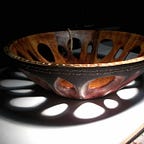Paracletes, Tripods, and Nini
by Susan G Holland, originally published in cowbird.com
Paracletes, Tripods, and a Favorite Aunt
Paraclete comes from the Koine Greek word παράκλητος (paráklētos, that can signify “one who consoles or comforts, one who encourages or uplifts; hence refreshes, and/or one who intercedes on our behalf as an advocate in court”) It means literally “called to one’s side”.
A tripod is a portable three-legged frame, used as a platform for supporting the weight and maintaining the stability of some other object. A tripod provides stability against downward forces and horizontal forces and movements about horizontal axes. A three-legged stool is stable even on an uneven floor.
Nini was the older sister of my father, whose door was always open.
All children surely should be issued three adults: two parents and a paraclete.
The word paraclete is a Greek term which means literally “called to one’s side” and is an exact equivalent of the Latin term advocatus.
Families, clearly, were designed to have two parents, the father and the mother. The reality of it is that “stuff happens” — then one or both parents, for a day, a week, or for as long as death, fail to be sufficient to the job. It is for this that paracletes are sent.
This is where Favorite Aunts (and, surely, Favorite Uncles) come into play. Aunts and uncles can be blood relatives or not, it seems.
My own children, having no local blood aunts or uncles, found among their friends’ parents certain key humans to adopt themselves to.
It made all the difference.
I was not really intimately privy to the details of these relationships other than to know that the adults my kids selected did faithfully reassure me of their health and welfare. They did not steal my children from me at all, but simply supplied loving alternative adults they could safely go to for haven and comforting. I am thankful to this day for their crucial role in my childrens’ lives.
But I can speak directly from my own experience of my own Favorite Aunt
With a loud-as-she-could slam of the door the twelve year old was gone — gone into the back yard and gone through the field and through the tangle-wangles and down into the woods, across the old trolley bed, and up through the back yards of the next neighborhood. She was making a beeline for an architectural gem of a house with winding driveway and slate roof — a place where she would open the front door without knocking and go in.
“Nini?”
“Who’s that? Is it you, Snooper Puss?”
And the dignified and graceful dark-haired lady with a perfectly straight part right down the middle of her hair would come down the curved staircase with her kind face and invite that tearful waif in for a cold drink and maybe a snack.
My father’s older sister was always my haven in times of storm. The safe thing about Nini was that she always treated me as a full-fledged person, not just “one of the children.”
She never failed to extend dignity and honest attention to what I told her, and never failed to offer her love and hospitality to me as she might to her best friend. If I needed comforting, she would supply it in a way that projected confidence in me — confidence that I would surely face my challenge successfully and that it was within me to figure out how.
There were times when I actually moved into Nini’s house — a comfortable show-case of a place with beautiful furniture, impressive possessions collected from travels, a smiling cook named Ardenia and a wonderful supply of soda pop in the fridge in the pantry!
I would spend the night in Nini’s guest room with its crisp sheets, silk taffeta comforters, large plump pillows, and ornate bottles and grooming items on the mirrored dressing table. I could look out on the serene back yard from the casement windows, and I could take a long bath in the ivory porcelain tub in the guest bathroom if I wanted.
The longest time I ever spent at Nini’s was for three weeks during my high school days. My mother, notified by Nini that I “would be staying for a little visit,” brought a suitcase to the familiar front door with my clothes and school books in it and for the next days, I went to school with the “bus kids” from Nini’s neighborhood.
When the time was right, I moved back home with a sense of dignity along with a revived appreciation of my parents and adults in general.
What was it about Nini that made her a healer? Wisdom, yes — and probably a very good memory of her own growing up thoughts and feelings. But, more than that — she projected a sort of unwavering confidence in me. There was no blaming, no preaching. There was no manipulation of the shared conversations that I could sense. There was a lot of listening, and her responses would be those of a friend coming alongside to help.
She was clearly by my side and on my side, and she would patiently slog through the mucky difficulties with me as if it were the first time — she and I were in it together.
Then she would join in the relief and happiness when together we found a helpful action or way of thinking that made the problem not unbearable after all, but something that could be addressed by a young girl like me.
I am pretty sure a Nini with an empty room instead of a posh guest room would have been as fine a paraclete for a young girl in turmoil.
I suspect there are unsung Nini’s in the world with not even an empty room for a child to shelter in. May the children of the world find them!
Susan
Originally published at cowbird.com. Tuesday, July 2007 ©SGHolland
